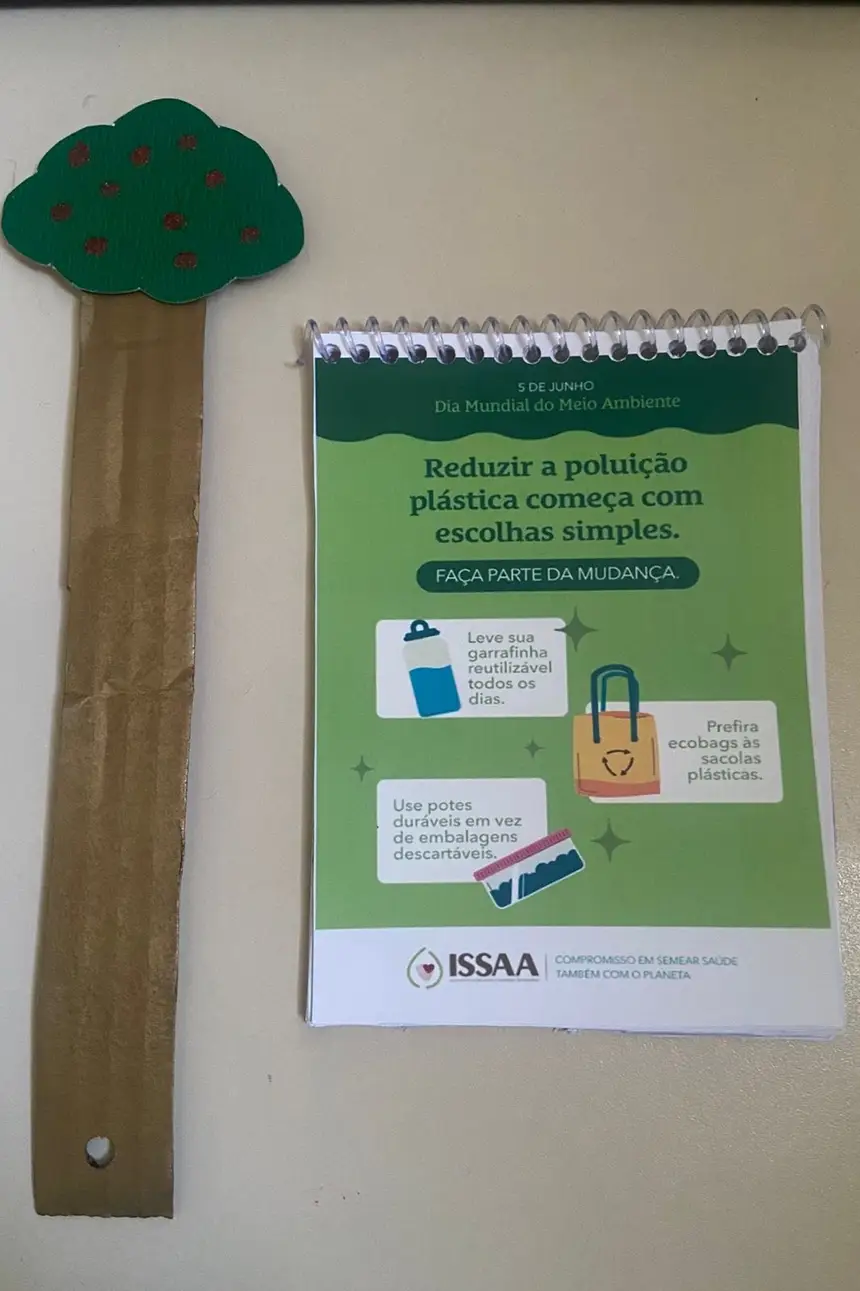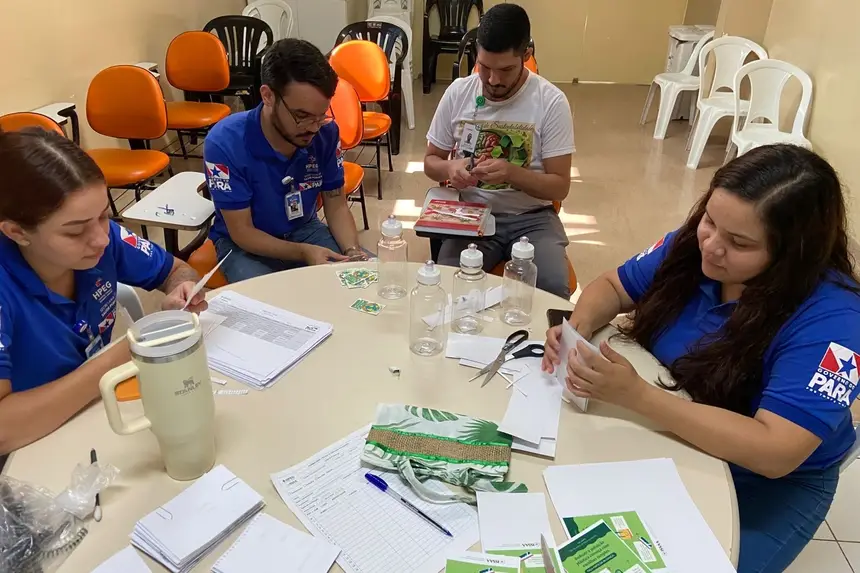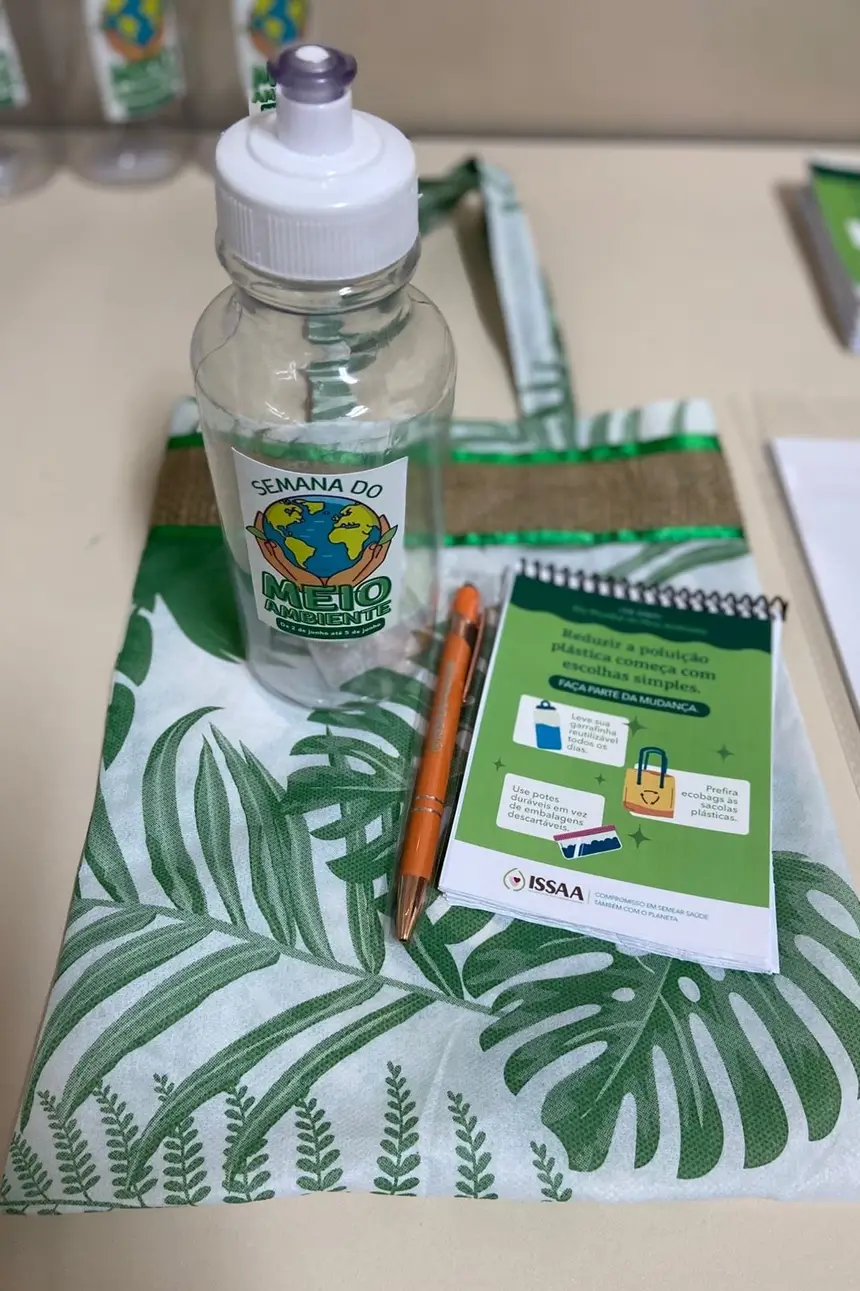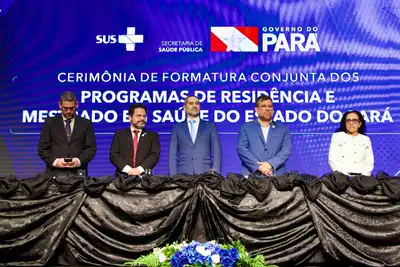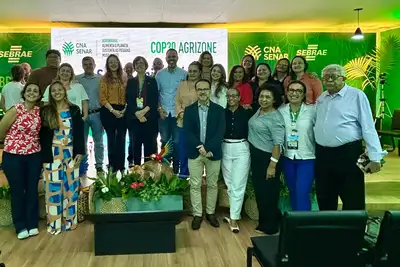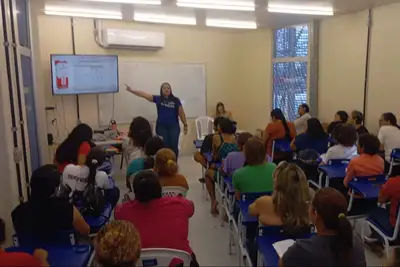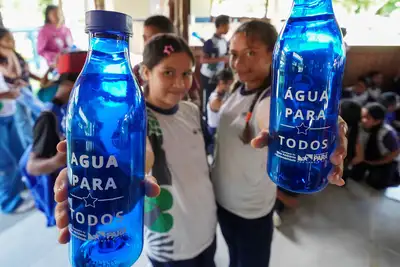Environment Week at Galileu plants ideas and harvests sustainability
With workshops, food repurposing, and recycling, the hospital reinforces that sustainability is built with small actions
With workshops on the full utilization of food and actions to combat plastic pollution, the Galileu Public State Hospital (HPEG), in Greater Belém, transforms waste into awareness during the "Environment Week." Until Friday (6), patients, companions, and staff participate in activities that practically demonstrate how small actions can lead to significant results in preserving the planet.
Launched on June 2, the week focuses on combating plastic pollution, aligning with the proposal of the "World Environment Day," celebrated this Thursday, June 5, by the United Nations (UN). The initiative emphasizes the urgency of reducing plastic use and adopting more sustainable practices in daily life.
According to Karolaine Martins, president of the hospital's Sustainability Committee, the program mobilized staff, patients, and companions, with educational blitzes, workshops, and training sessions. During the activities, in partnership with the cooperative "Citizenship for All," recyclables are being distributed, strengthening the work of waste pickers and contributing to income generation and inclusion.
"We want to raise awareness about how small actions can create significant impacts on environmental preservation. This year, we particularly emphasized the fight against plastic pollution, showing that reducing the use of this material is essential to protect the environment and build a more sustainable future," highlighted Karolaine.
Among the activities, she highlighted the production of sustainable giveaways, such as notepads made from repurposed materials from the unit itself. "We transformed paper and cardboard that would have been discarded into useful and creative items. Among them, eco-bags were made. These giveaways are being distributed to patients and staff, reinforcing the message of conscious consumption and resource reuse," she added.
Re-signifying to preserve - Sustainability is also present in the hospital kitchen at Galileu, where peels, stems, and seeds are no longer discarded but transformed into ingredients for new recipes. The proposal reinforces that caring for nature can start on the plate.
According to the coordinator of the Nutrition and Dietetics Service (SND), the sector has shown that it is possible to combine flavor, health, and environmental responsibility. "When we invest in practices like repurposing organic waste, we reduce the impact on the environment and also food waste. Each repurposed or recycled waste represents a direct contribution to a more sustainable environment," she explained.
During the campaign, the professional highlighted that preparations made with the full utilization of food were served, surprising even the most traditional palates. "Even though it is not a typical proposal of our food culture, everyone welcomed it very well. Besides combating waste, the initiative raises awareness and reinforces that sustainability is also built at the table, in daily life," Ana concluded.
Currently, the hospital kitchen generates an average of 6.5 kilograms of fruit and vegetable peels per day. With repurposing, this volume has significantly decreased, generating a positive impact both on waste management and in building a more conscious and sustainable institutional culture.
Program - The "Environment Week" at Galileu continues until this Friday (6), with workshops, training sessions, and a lecture on "Collective Action to Combat Plastic Pollution." The proposal is to raise awareness among staff, patients, and companions about the urgency of addressing one of the greatest environmental challenges today.
Plastic, when improperly discarded, takes hundreds of years to decompose; pollutes rivers, seas, and soils; threatens animal life; and directly impacts human health. Therefore, in addition to providing information, the program encourages conscious practices, such as reducing the use of disposables, repurposing materials, correctly separating waste, and promoting recycling.
Profile - The unit is managed by the Social and Environmental Institute of the Amazon (ISSAA), in partnership with the State Department of Public Health (Sespa). HPEG is among the best hospitals in Brazil, with satisfaction rates of nearly 100% and ONA level 3 certification, accredited with excellence in safety criteria, integrated process management, and administrative excellence.


